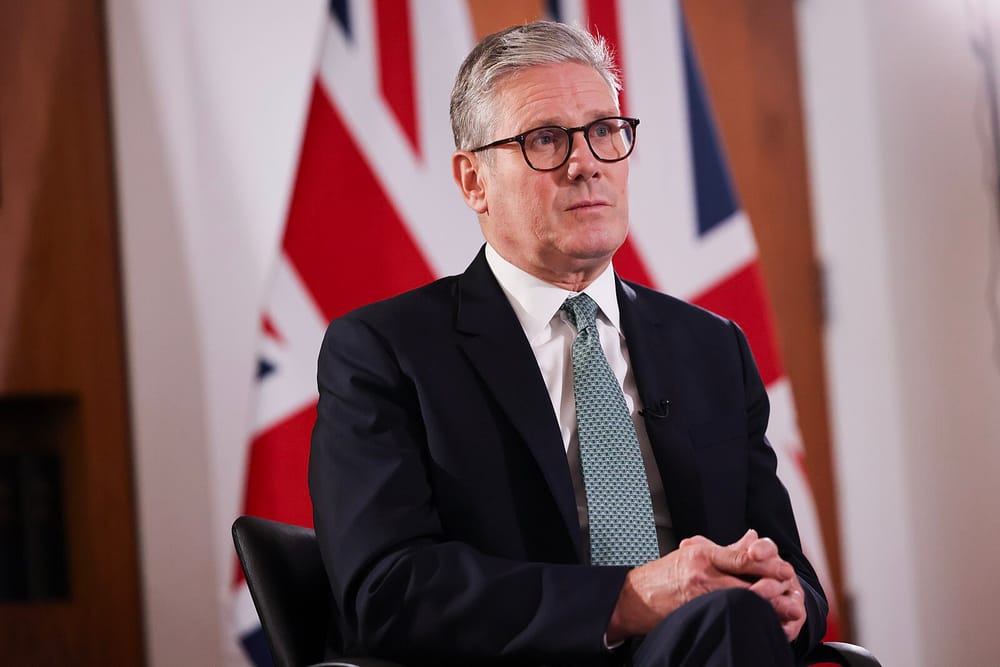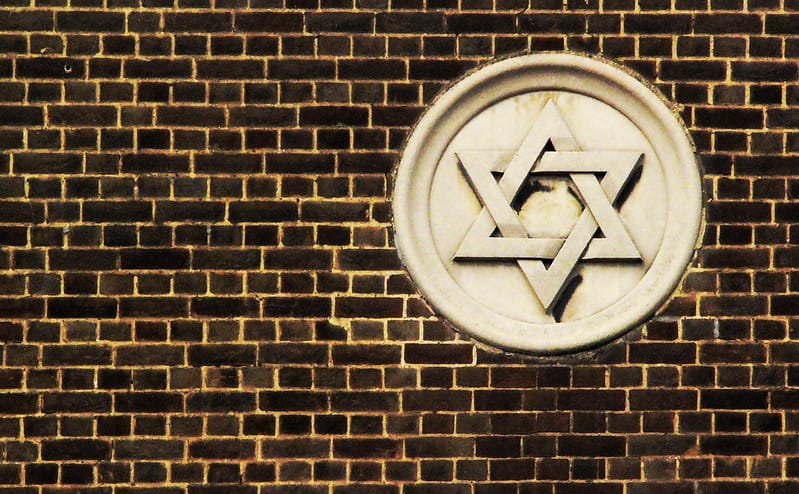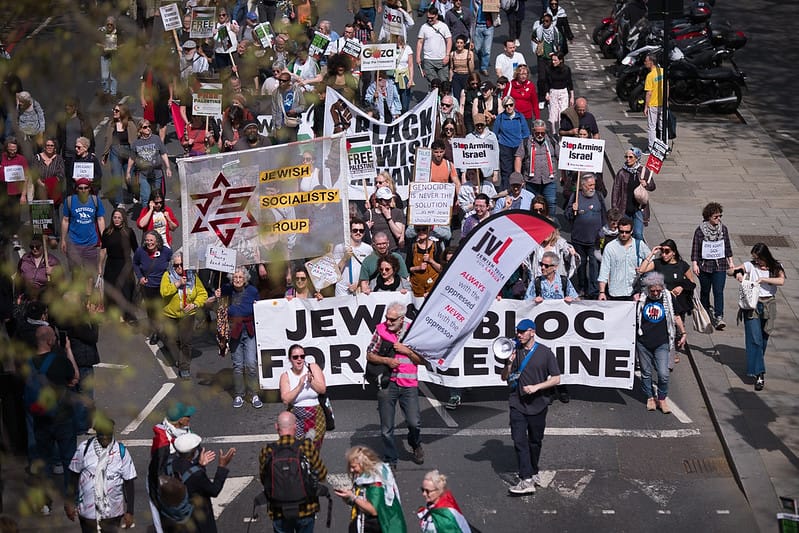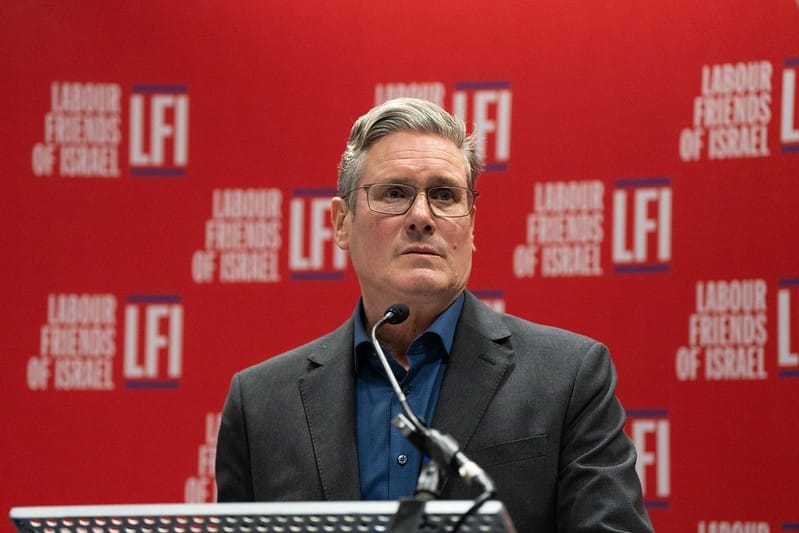What’s behind the campaign to cancel Roger Waters?
Interrogating the calls to ban the rock star’s concerts.

Roger Waters has never been far from controversy, but that appears to be reaching new levels as the former Pink Floyd frontman faces calls to ban his upcoming shows in the UK on the grounds that they could fuel anti-Jewish hate. As has become customary in the public debates over antisemitism in recent years, the social media-driven analysis has painted a rather deceptive picture, with the political motivations behind the latest wave of allegations more complex than has been suggested.
This is not the first time Waters has been plagued by accusations of antisemitism, and there is no doubt that he has made antisemitic comments in the past. In 2013, in response to a question about why his fellow musicians were reticent about signing up to a cultural boycott of Israel, Waters responded that “the Jewish lobby is extraordinarily powerful here [in the United States]”. He also once accused the US billionaire Sheldon Adelson of “pulling the strings” of US political figures, although he later issued an apology.
However, it is not those previous comments that have drawn the ire of the Board of Deputies, Labour MP Christian Wakefield (until recently a Conservative), German NGOs, UK Lawyers for Israel, and other assorted defenders of Jews over the past week, even if they have provided the mood music. Instead, it is what happened at Waters’ gig last week in Berlin that became central to demands to ban him from performing, both at further scheduled dates in Germany and now in the UK.
Assessing the claims
In the immediate aftermath of the concert, images began circulating on social media focusing on three aspects that supposedly demonstrated antisemitism.
The first was an image contrasting two big screens shown at the concert; one bore the name of the Palestinian journalist Shireen Abu Akleh who was killed in Jenin last year by an Israeli sniper, while the other bore the name of diarist and Holocaust victim Anne Frank. The explicit implication of posing these two images together was that Waters was drawing a set of equivalences between Abu Akleh and Frank, and thus devaluing the Holocaust. Indeed, from the images being circulated on social media, it looked as if the two screens were showing the names simultaneously.
But this was not the case. It quickly became clear that the screens at the show had simply displayed the names of 12 victims of orchestrated state violence, and so, promptly, other lines of attack emerged.
The next concerned a large inflatable pig that has actually been a mainstay of Waters’ shows for many years – an allusion to the pig that Pink Floyd flew above Battersea power station for the cover of their 1977 album Animals. After Waters’ Berlin concert, claims emerged on social media that the pig had appeared at these events emblazoned with a Star of David.
Yet this wasn’t true either – the photo circulating was from a decade ago. The allegation was also, again, narrowly framed, ignoring that the pig from 2013 featured many symbols, including a crucifix, an Islamic crescent, the Shell logo, and various political statements. And while the 2013 stunt did spark accusations of antisemitism from some quarters, it’s notable that the Anti-Defamation League – not usually one to defend BDS supporters – concluded: “we believe there is no anti-Semitic intent here”.
As well as the pig, the focus soon fell on Waters’ decision to dress up as a Nazi – in Germany, no less, and at venues that include the site in Frankfurt where the Nazis rounded up 3,000 Jews in 1938 before sending them to concentration camps. But a Frankfurt court concluded in April that while maybe tasteless, the Nazi cosplaying wasn’t antisemitic (the Berlin police has since opened a criminal investigation into the matter). In response to the latest backlash, Waters seems to have shed the uniform.
Nazi cosplaying, it should be noted, has been absolutely central to Waters’ live performances of Pink Floyd’s 1979 album The Wall – as well as the Bob Geldof-led film that the album spawned – for over 40 years. The lyrics of some of the songs mimic, very explicitly, how Nazis and other European fascists might have spoken about their victims during the second world war. Some people might not like it, but those suddenly feigning outrage never seemed particularly bothered by it before.
What’s more, given the state of affairs in Germany today, one might even consider it appropriate to draw parallels with German history in the context of ongoing events. Just a week before Waters’ concert, Jews protesting in solidarity with Palestine were rounded up by police on the streets of Berlin. Six months ago, a major plot was uncovered to overthrow the Reichstag and install a far-right aristocrat as head of state, with weapons found at more than 50 locations. And the far-right Alternative für Deutschland party is resurgent; having dipped to 10.3% (still a scarily high number) of the vote in the 2021 federal election (from 12.6% in 2017) some polls now have the party at 18%.
Once we see these allegations in their context, we can begin to understand some of the real dynamics at play.
Self-defeating anti-racism
Waters is not a man with a particularly sophisticated or consistent outlook when it comes to liberatory politics. In recent years, he has used his platform to call into question Russian atrocities in Ukraine and accuse the White Helmets in Syria of being a Western false-flag operation. He has also yearned for an Israeli FW de Klerk, referencing the South African leader who negotiated the end of political apartheid but ensured the continuing and successful functioning of white capital in South Africa.
Indeed, among rock-god-egos like Waters, there’s been a marked uptick in bizarre political outbursts of late, with the pandemic seemingly lighting the touchpaper. Eric Clapton and Ian Brown both recorded anti-vax songs (the latter referencing 5G and the “new world order”); Van Morrison wrote a whole anti-vax and anti-lockdown album, which included a song titled They Own the Media; and the less said about Morrissey the better.
In many ways, there is little here that’s new. Musicians are people, and people sometimes say and do really awful things – often without much in the way of public outcry. Lynyrd Skynyrd, the 1970s country-rock band that regularly performed in front of a Confederate flag, continues to hit the AOR airwaves on a daily basis with their hit Sweet Home Alabama – a song that, at best, has an ambiguous relationship to white supremacy. The estates of Jerry Lee Lewis and Michael Jackson don’t appear to have suffered too much from their respective scandals either.
Yet it is not Morrissey, Van Morrison or Ian Brown who are facing calls from MPs to have their UK shows cancelled, only Waters.
We can get a good sense of what’s really going on here simply by considering the organisations that have assembled to try to cancel Waters, which include some notable anti-anti-racists. The Board of Deputies probably needs no introduction here; UK Lawyers for Israel, for its part, is intent on criminalising Palestinians and pro-Palestine speech, even successfully banning artwork by Palestinian children at a recent hospital exhibition in London; and one of the prime movers in the anti-Waters protests in Germany, the Werte Initiative, carries a call to close and prosecute mosques whose websites do not commit to “democracy and indivisible human rights”. Meanwhile, the main symbol of those protests in recent days has been, rather tellingly, the Israeli flag.
And so it becomes clear: while Waters has definitely taken positions that put him on the crankier side of geopolitical debates, he is also one of the highest profile advocates in the world for Palestinian rights, and one of the public figures most synonymous with the BDS movement. In a world where pro-Palestine speech is continuously policed and criminalised, this is meaningful, even if there is a legitimate debate to be had about how useful people who defend Assad and Putin are to Palestinian liberation – but this is a debate for Palestinian movements, not for the Board of Deputies, anti-Palestinian racists, British MPs, and definitely not Islamophobic German philosemites.
As so often before, we find ourselves in a situation where those most vocal in defending Jewish interests are those most deeply invested in policing the voices and movements of racialised and colonised communities. And for Jews, this is a totally self-defeating anti-racist strategy.
So long as Jewish communal bodies fail to understand that the fight against antisemitism is inextricably linked with other anti-racist, anti-imperialist and anti-colonial struggles, and unless those same bodies extricate themselves from governments and organisations that criminalise and violently police Palestinian life, then they will continue to align themselves with the increasingly authoritarian forces that characterise political life in Britain and much of the world right now. These are not forces that are going to be friendly towards Jews, nor are they likely to have any impact on the opinions of Roger Waters or his fans who might actually make a difference to where, when and how he performs.▼
Clive Gabay is a Reader in International Politics at Queen Mary University of London, with an interest in Arab Jews, antisemitism and anti-racism. He also really likes Pink Floyd.
Author

Clive Gabay is a Reader in International Politics at Queen Mary University of London, with an interest in Arab Jews, antisemitism and anti-racism.
Sign up for The Pickle and New, From Vashti.
Stay up to date with Vashti.



